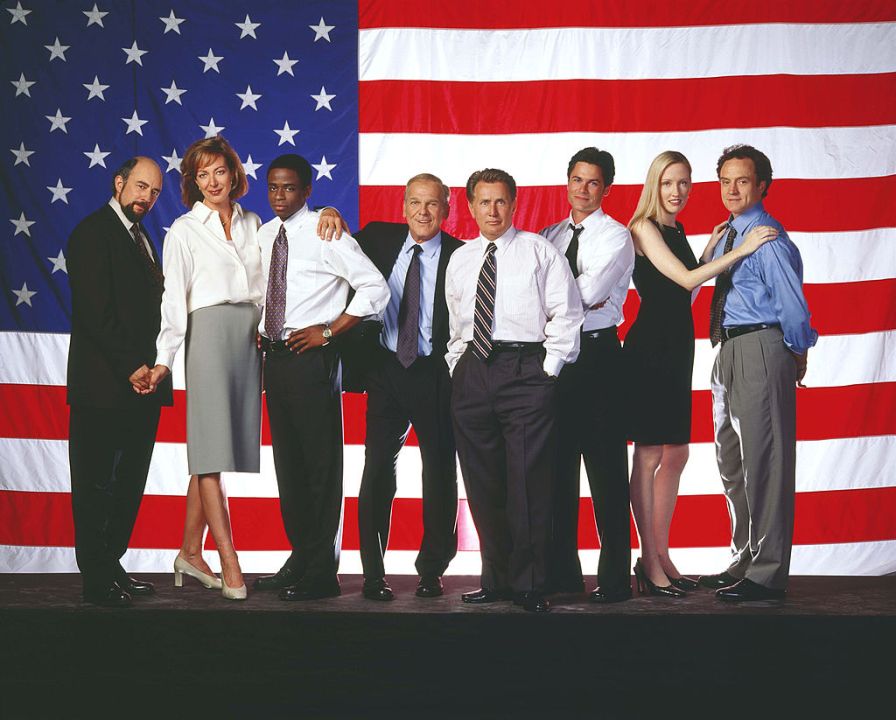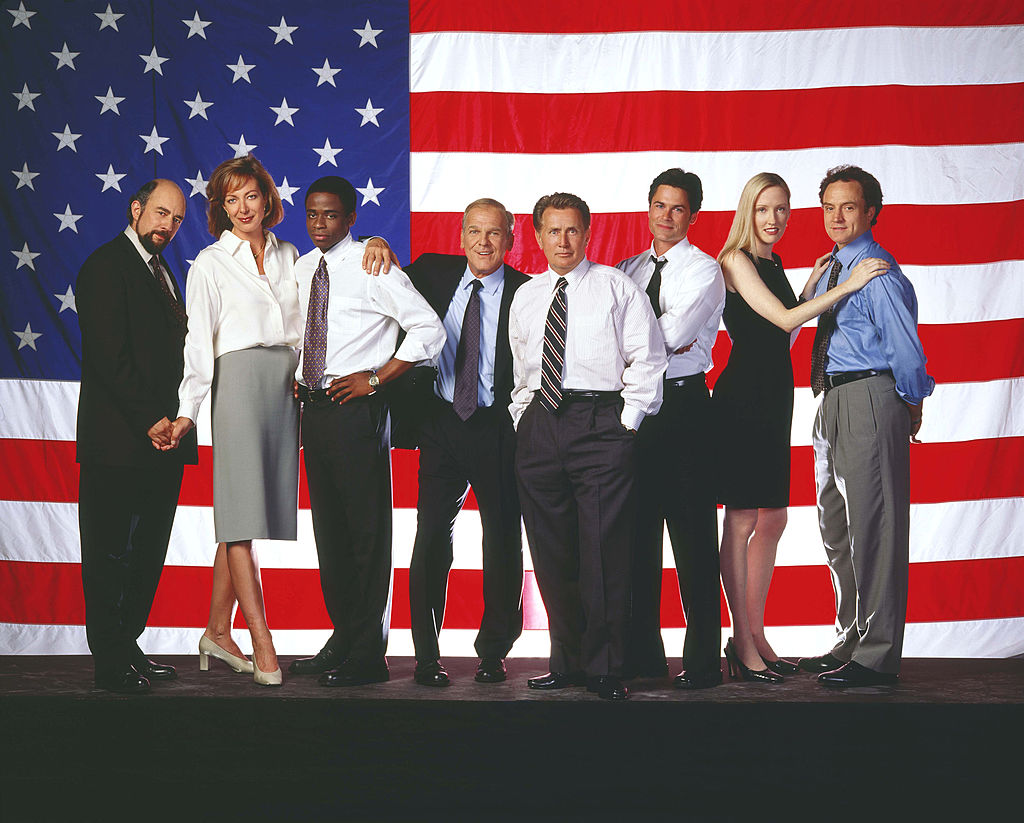Welcome to part two of my personal guide to the absolute must-see TV shows of the last few years. It is, as you might have already guessed, very idiosyncratic. No The Wire? Nope, ‘fraid not. I found it dreary and unintelligible. No, The West Wing? Also no, for ideological reasons. I’m simply not interested in a drama where the central premise is: ‘Just how amazing is this wise, benign left-liberal President?’ (If he were cut more from the cloth of Coolidge, Reagan or Trump, I might have been more enthusiastic.)
This week, my loose theme is ‘quirky’: shows that slipped through the net and didn’t get quite the attention they deserved; shows that are just beguilingly odd or eerily atmospheric; or have a strong sense of time and place. If you haven’t watched these, you’re in for a treat.
The Returned
By turns unsettling and lyrical, this French-language drama (Les Revenants) is set in a mountain village where – spoiler alert – a bus-load of locals who died in a terrible accident mysteriously reappear, apparently alive and well, years later. It has a gorgeous soundtrack by Mogwai and a wondrously odd mood and tone. Don’t expect any resolution, though. Season Two – rushed out to cash in when Season One proved an unlikely hit – is a dog’s breakfast of a disappointment.
Locke and Key
Based on a series of graphic novels, this Netflix drama about a haunted house full of magical keys which unlock all manner of dimensions, may look like it’s suitable only for adolescents. But after a couple of episodes the Fawn and I were hooked. Its themes are familiar to the point of cliché – family begins a new life in a strange place; struggling to make friends in a new school; burgeoning teen romance, etc. – but it spins off crazily in all manner of fantastically dark, disturbing directions, building to a tremendously exciting climax.
Mad Men
Mad Men’s only crime is to have gone on for so many seasons that one began to undervalue its genius. It’s a pitch-perfect recreation of the lost world of the US advertising industry in the 60s and 70s: the sharp suits; the sexual intrigue; and most important of all, the three-Martini lunches.
Glue
Channel 4 drama went through a golden era in the early teens of this century: edgy, original, almost entirely free of the box-ticking and political correctness which makes so much terrestrial TV these days unwatchable. Jack Thorne’s criminally underrated E4 drama Glue – which you’ll probably have to order on DVD – was described as like a cross between (sweary, druggy, sex-drenched yoof drama) Skins and Broadchurch. It’s a sinuous murder thriller set in very rural Berkshire. At once impossibly idyllic and sinister; the ensemble acting of the up-and-coming cast – including Phoebe Waller-Bridge; Jordan Stephens (of hip-hop duo Rizzle Kicks); and the future Tommen from Game of Thrones – is mesmerisingly brilliant.
Utopia
‘Where is Jessica Hyde?’ We never did find out because, in possibly the greatest crime in the history of television commissioning, Utopia never got the third season that might have explained to us what it all meant. Dennis Kelly’s black comedy/conspiracy thriller concerns a graphic novel, ‘The Utopia Experiments’, whose unpublished sequel holds the blueprint for the survival of mankind from a viral pandemic. People will kill to get hold of it – for reasons that will make even more sense now than when it was first broadcast on Channel 4 in 2013.
Misfits
Another E4 series, Misfits was an early example of what would later become a well-worn genre: anti-superheroes. A group of young offenders on a community service programme suddenly find themselves in possession of strange powers: telepathy; rewinding time (but only after experiencing tremendous regret); and removing the powers of others through sexual intercourse.
Giri/Haji
Almost every BBC drama these days is endlessly disappointing. How on earth did this masterpiece slip through the net? Joe Barton’s Anglo-Japanese thriller about yakuza gangsters in Britain is, not unlike the Anime that inspired it, by turns cartoonishly violent, melancholy, funny, romantic, moving, poetic, charming and beautiful. You’ll love every moment, and most especially you’ll love Rodney the Eurasian rent boy (played by the versatile Will Sharpe) but every character is a winner, and it grips and surprises and delights right to the satisfying denouement.
Top Boy
Ronan Bennett’s gripping series about drug dealing gangs in East London – the first two seasons on Channel 4, the third on Netflix – strikes me as the perfect refutation of the current oppressive fashion for ‘diversity casting.’ Almost everyone in it is black: it’s about gangs, fam, innit? But no sane viewer sits there going: ‘I wish there were more white people so I could relate to it more.’ Sure the characters can be ruthless murderous thugs, sometimes, but you understand why: drugs are their livelihood and if they don’t protect their patch someone else will muscle in and destroy them. Grimly authentic, thrillingly plotted, superbly acted – you’ll be hooked.
Babylon Berlin
Definitely one of the best things on TV of the last decade, this German-language thriller captures magnificently the morphine-drenched decadence, sleaze, seedy glamour, corruption, and impending doom of Berlin’s Weimar years. The plot’s great when you can keep up with it, the characters, led by Volker Bruch as drug-addicted war veteran turned detective Gereon Rath and Liv Lisa Fries as his flapper turned sidekick, are adorable, and the historical background (Commies v Nazis) endlessly absorbing. But it’s the atmosphere and set pieces that make it.
Fauda
What’s great about this Middle Eastern thriller series (it means ‘Chaos’ in Hebrew) is that because it’s made in Israel it doesn’t make the slightest nod to political correctness in its depiction of the cat and mouse game between Islamic terrorists and the Israeli undercover unit charged with destroying them. Though one side loves death, the other life, they are all revealed to be brothers and sisters under the skin – who share much of the same language, cuisine, and culture, just with wildly different values. It’s brutal, impossibly tense, and incredibly authentic – not least because the guys who wrote it Lior Raz and Avi Issacharoff served in the Israel Defense Forces. Do not, under any circumstances, watch the dubbed version: watch it in Hebrew, with subtitles.
Gomorrah
I love the Irish Times’s description: ‘The series where characters die before they become characters.’ It’s sadly true: the death toll is horrific. But then life is nasty, brutal and short in the suburbs of Naples when you’re in the Camorra mob. It’s moody, bleak, with a haunting electronic score and a cast of richly drawn, fantastically well-acted characters and a sweeping tragic arc almost Shakespearean in its complexity and breadth of vision. One of the best TV series ever, I’d say: just don’t get too attached to anyone in it.
Suburra: Blood on Rome
Suburra is a lot like Gomorrah only, because it’s set in Rome rather than Naples, it’s more colourful and kitsch. There’s also more of an interplay with high-level politics and the Church. Everyone, of course, is fabulously corrupt. It’s beautifully shot – redolent of Paolo Sorrentino’s La Grande Bellezza, at times – and the trio of main characters, especially the smirking closeted gay gipsy, Spadino, become like your friends.
Succession
Perdition catch my soul, but I do love Succession. Inspired loosely by the Murdoch family empire, it’s about a bullying media patriarch Logan Roy, and his bickering offspring as they vie to prove themselves worthy of his inheritance. Cynical, sassy, with a relentlessly witty script profligate with one-liners – as you’d expect from scriptwriter Jesse Armstrong (who also co-wrote Peep Show) – and a cast of monsters whom you can’t help liking, even as you deplore their sublime awfulness.








Comments